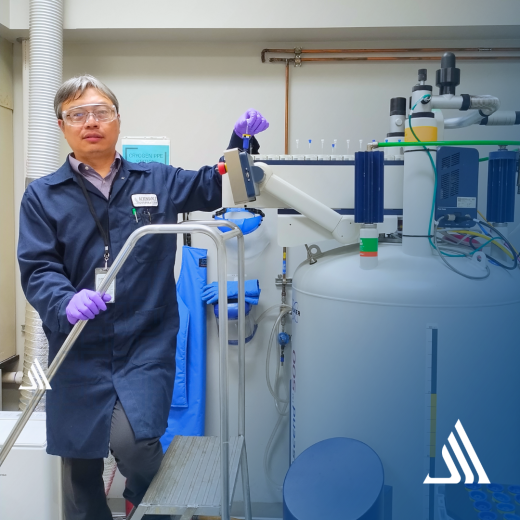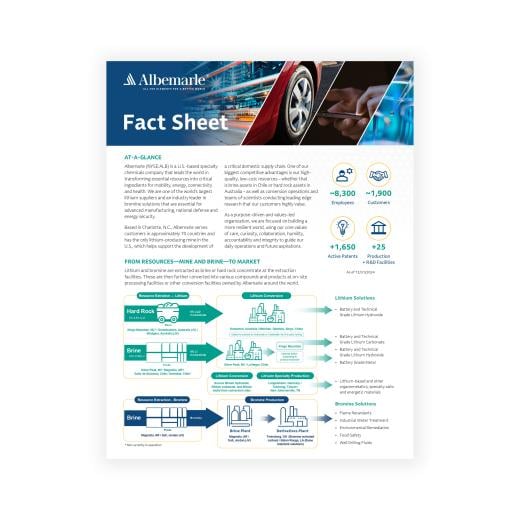Newsroom

In the News
Expert Voices: The Science of Seeing the Invisible
Dr. Zhaoxiong Zheng uses NMR technology to unlock the secrets of Albemarle’s specialty chemicals — studying molecules instead of bodies.

MEDIA FACT SHEET
From Resources - Mine and Brine - To Market
Download our media fact sheet to learn the role Albemarle plays in the extraction, conversion and processing of lithium and bromine.
Press & Media Contact
For press & media inquiries, please contact our Media Relations team - for all other inquiries please go through the Contact Us page.



